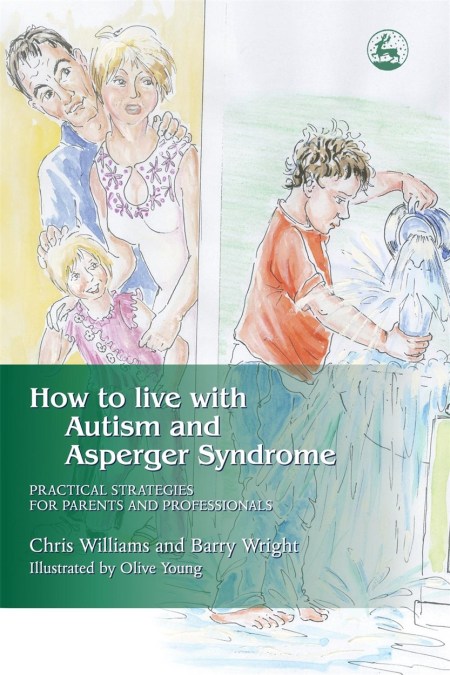How to Live with Autism and Asperger Syndrome
On sale
15th June 2003
Price: £21.99
This accessible and valuable introduction to caring for a child with autism is an ideal resource for teachers and members of a child with autism’s immediate and extended family. In clear and simple language, with many illustrations, the authors tackle common problems experienced in everyday routines such as eating, sleeping and going to the toilet, as well as how to cope with aggression and tantrums, preoccupations and compulsions and how to enable better communication and socialising. Based on up-to-date research and using many case examples, the authors consider step-by-step why each problem may be happening and suggest a number of solutions.
Newsletter Signup
By clicking 'Sign Up,' I acknowledge that I have read and agree to Hachette Book Group's Privacy Policy and Terms of Use
Reviews
Chris Williams and Barry Wright have done well to write an extremely useful practical guide for parents and professionals alike. This book has a clear layout... I would highly recommend this book to anyone with an interest in autism spectrum disorders'.
Consultant clinical child psychologists at the National Health Service in York, England, Williams and Wright offer non-technical advice to parents on how to understand their children with autism, to manage common problems, and how best to encourage their children's development. They also describe behaviours that might alert parents that their child might have autism, and overview how researchers believe children with autism think and experience the world.
This useful book is aimed at parents of children with autistic spectrum disorders as well as professionals. It is very readable and sets out to address in clear logical fashion three important questions: 1. Does my child have autistic spectrum disorder? 2. How do children with ASD view the world? 3. How can we help? The authors suggest a wide range of strategies for parents and professionals to select from to help the child with an ASD. A particular strength of the book is the emphasis on analysing problems in an effort to understand why they are happening so that the optimal response can be employed - a wise and effective philosophy in the care and management of any child with ASD!
In clear and simple language the authors (Christine Williams and Barry Wright) tackle common problems experienced in everyday routines.
This book is a solid and accessible guide to what to look for, what to expect -as well as what not to expect-and how to handle situations with children with autism spectrum disorders.The clear organization, matter of fact and accessible writing (although some "Britishisms" might take getting used to) and the respectful attitude toward children with ASD make this a good pick for teen parenting collections. Newly diagnosed teens looking for information would also be well served by this title, particularly the middle section, which could provide insight into some of the issues they face.
I would recommend this book warmly to what presumably is its primary target audience of parents of children with ASD. The level of writing is pitched at what I would guess is 'mainstream TV science programme' standard (no mean feat given some of the complex issues described), so it should be widely accessible. Students (postgraduate and undergraduate) should also find the book useful, not for 'academic' information, but for gaining an understanding of the emotional and practical issues involved (something easy to overlook when studying the nth permutation of the sally-Anne task).

